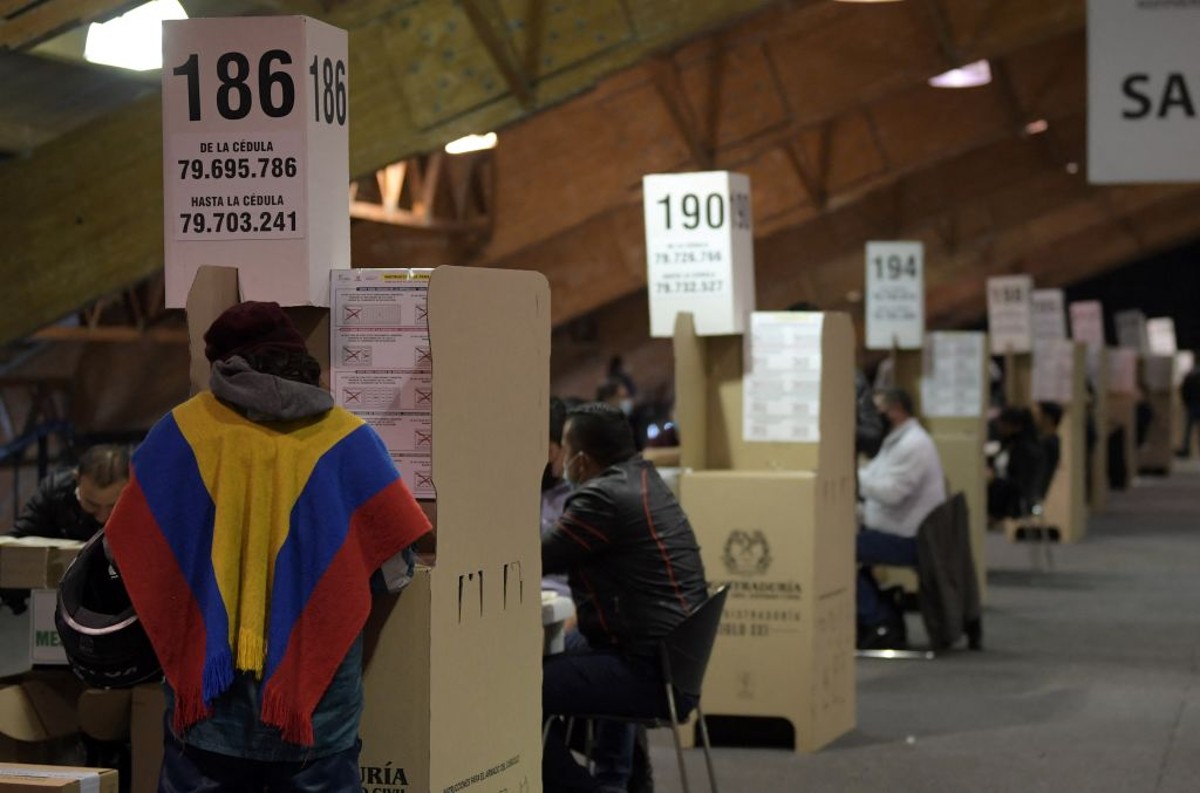What president do the citizens want for Colombia?
2:50
Editor's Note:
Roberto Izurieta is Director of Latin American Projects at George Washington University.
He has worked on political campaigns in several Latin American countries and Spain, and was an advisor to presidents Alejandro Toledo of Peru;
Vicente Fox, from Mexico, and Álvaro Colom, from Guatemala.
The author is also a contributor to CNN en Español.
The opinions expressed herein are solely theirs.
(CNN Spanish) --
In practical terms, Colombia has three electoral rounds: internal party consultations, and then the first and second general rounds.
In these times of polarization, political dispersion and disinterest, it may be that Colombia gives us a guide on how to help solve these problems in electoral political systems.
The elections of the Peruvian congressmen in 2020 gave an alarming sign of where political fragmentation is leading us.
An alarm signal because any candidate could be elected in a single round.
When there are 20 candidates (or many more for Congress), little public interest, and little time, the candidates most likely to win are anyone (that is, elections become almost random).
Those who build an electoral base of extremism also win: those that arise from the scandal or radicalism of any religious or political class.
In other words, when there is no party strength or tradition (as there is in the US or Europe), a single electoral round only elects leaders who mainly produce instability, more corruption and limit governability,
Rodolfo Hernández says he will return to Colombia after announcing that he was suspending his public appearances to guarantee his safety
In presidential elections, countries with a single electoral round, such as Mexico, may end up electing a candidate who has little representativeness due to absenteeism.
Almost all countries have internal partisan elections, but they are not relevant.
I think that the exceptions are Paraguay and Chile, where they are very representative, although it is becoming more and more attractive not to participate in them (a kind of trap or shortcut) and face each other directly in the first electoral round.
That weakens political parties and again increases dispersion and therefore voter interest or confusion.
Preselection is always good.
Colombia also has internal party elections, but these, as in almost the entire region, are not very relevant because they produce little interest and few participate.
But what is important in Colombia is given in the congressional elections (which in this case were held on March 13).
In my opinion, those are the most interesting and I had the opportunity to study them thanks to the fact that I was invited as an international observer by the National Electoral Council.
What will happen to Venezuelans in Colombia when a new government is elected?
Ambassador Pinzón gives his perspective
In this luck of the first round, people go to the polls in good numbers, in part promoted by the hundreds and thousands of candidates for Congress.
But when voters go to the polling station, they are invited to choose an additional ballot paper on "internal consultations".
For Iván Duque, it was something essential four years ago.
For Petro it was not on that occasion nor on this one, although the result of the March 13 election gave the first sign that Petro had a ceiling that made it more difficult for him to win in the first round of elections, as indeed happened.
advertising
With this process of internal consultations, in Colombia, like many Latin American countries, a kind of pre-selection of almost 20 candidates is given to just a few.
That facilitates the work of information and interest for voters.
Voters are not going to study 20 government plans, analyze them and vote.
Not three either, but at least the level of attention and knowledge of who the main presidential candidates are is facilitated.
What happens if I cannot attend as a voting jury in the Colombian presidential elections?
How much is the fine?
It was through the inter-party consultations that many got to know Federico 'Fico' Gutiérrez better.
Rodolfo Hernández did not participate, but his popularity began to grow rapidly weeks before the first round.
Hernández ended up being the big surprise and for many, the winner of that first round despite having started second.
This second round, which, in practical terms, I call it the third, will be much simpler for the voters and it will be short.
Voters know Petro very well (he has been mayor of Bogotá and a three-time presidential candidate), but for several weeks many voters have paid more attention to Hernández for being new to politics, different, spontaneous.
Hernández was also a successful mayor in Bucaramanga, although he faces a corruption charge to which he pleads not guilty.
Like all outsiders, he has had politically incorrect expressions and others that he has had to clarify (such as having confused Hitler's name with Einstein's, for which he apologized).
The only certain thing, and undoubtedly positive, is that the next vice-presidency will be a black woman.
In these times of polarization, social networks, fake news and disinterest, we must look for new forms of electoral processes that help us provide political stability.
There are other very interesting systems to study, such as in California, New York, Maine or Slovenia, among others.
In these places you can vote in order of preference (generally three to five qualified candidates).
That is, the voter can "rank" his preference of candidates.
This has the objective of producing the one who faces the least resistance, not the one with the largest electoral base.
In a certain way, what is sought is that someone moderate or independent of the political confrontation of the moment be elected.
In addition, in the case of California, it simplifies in a single election (only one round).
These are all cases worth looking at,
More about the Colombian elections at: cnne.com/colombia
Colombian Elections

